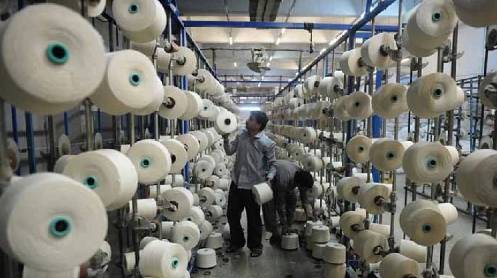ISLAMABAD: Amid a decline in textile exports in June, industry leaders have urged the government to renegotiate agreements with Independent Power Producers (IPPs) to rescue the struggling sector. They argue that the exorbitant cost of electricity, driven by capacity charges, is unsustainable.
Former caretaker minister for Commerce and Industry, Gohar Ejaz, criticized the government for imposing Rs24 per unit in IPP capacity payments on consumers. Khurram Mukhtar, Patron-in-Chief of the Pakistan Textile Exporters Association (PTEA), echoed this concern, calling for a revision of these agreements.
The debate over IPP capacity payments has intensified due to rising consumer power costs. “We are all sinking under the current Rs2 trillion capacity payments to 40 owners of these closed and partially operational IPPs,” Mr. Ejaz stated. He emphasized that skyrocketing energy prices are stifling industrial expansion, particularly in textiles and garments.
Mr. Ejaz highlighted that 53 IPPs, though completely closed, continue to receive regular capacity payments from the government despite not producing any electricity. He questioned the rationale behind such payments, collected from both consumers and businesses.
In 2015, with an installed capacity of 20,000MW, the capacity fee was Rs200bn for 13,000MW consumption. By 2024, while the installed capacity has increased to 43,400MW, the consumption remains at 13,000MW, with capacity payments ballooning to Rs2 trillion. This scenario has led to consumers being charged ten times the capacity charges for the same units.
Ejaz pointed out that electricity, costing Rs35 per unit (including Rs10.60 in fuel charges and Rs24 in capacity charges), is distributed by Discos at Rs60 per unit to domestic consumers, yet the government incurs significant losses. He advocated for growth and investment in export-oriented industries, lamenting that high energy prices make exports unfeasible.
PTEA Chairman Arif Mahmood Qureshi reinforced these concerns, stressing that the textile industry is committed to supporting the country but needs lower power tariffs to reduce production costs and remain competitive. He noted that the current power tariff in Pakistan is nearly double that of competing economies like India, Bangladesh, and Vietnam.
In conclusion, addressing high electricity costs is critical for revitalizing Pakistan’s textile exports and economic growth.
Story by Mubarak Zeb Khan







